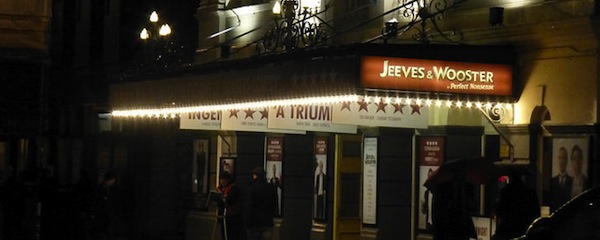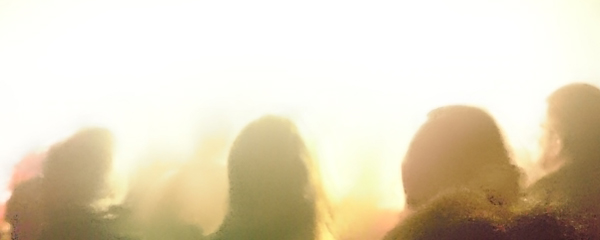
photo © Roel, 2009
by Nafisa Muhtadi
The more I read short stories that are written in the lyrical style beloved by some competition judges, the more I crave ugliness in prose. Poetic narratives with windswept thoughts lyrically describing landscapes, rivers and seas are not for me.
George Saunders caught a disease while river swimming so it seems fitting that his stories should plunge the murkier depths of reality. In ‘Puppy’, collected in Tenth of December, appreciation of beauty does start the story, as the main character, Marie, twice points out to her children ‘the brilliance of the autumnal sun on the perfect field of corn’. But her loved and cared-for children are soon exposed to ugliness when they enter the house of a woman selling puppies. The first thing they notice is the woman picking up dog turds from a rug.
The filth, the mildew smell, the dry aquarium holding the single encyclopaedia volume, the pasta pot on the bookshelf with an inflatable candy cane inexplicably sticking out of it.
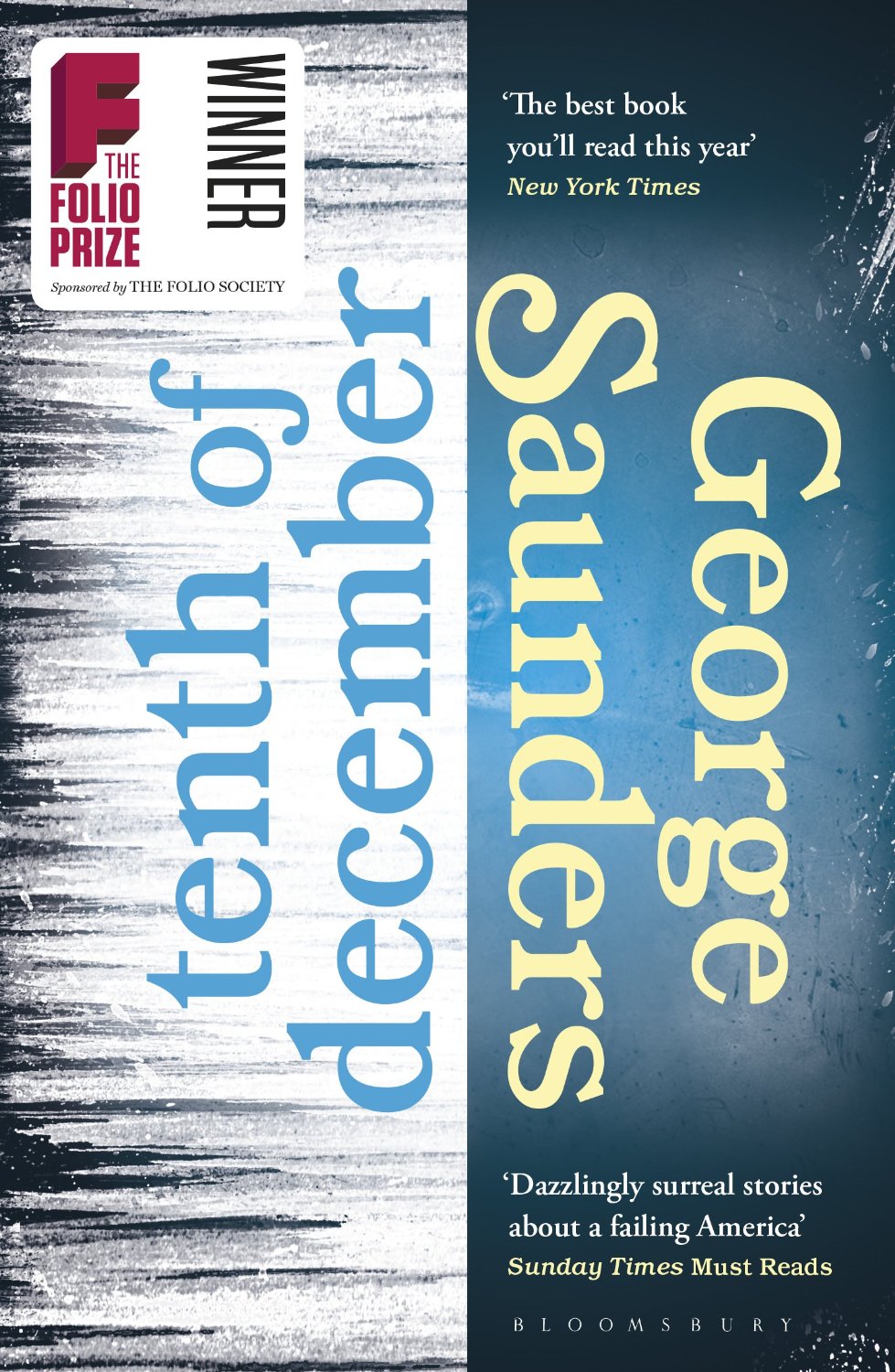 The untidiness is strange and incomprehensible. For what reason would there be a ‘crankshaft on a cookie sheet … a partial red pepper afloat in a can of green paint’? Marie’s thoughts on the puppy she is considering purchasing are equally blunt and bizarre:
The untidiness is strange and incomprehensible. For what reason would there be a ‘crankshaft on a cookie sheet … a partial red pepper afloat in a can of green paint’? Marie’s thoughts on the puppy she is considering purchasing are equally blunt and bizarre:
Okay, then, all right, they could adopt a white-trash dog. Ha ha. They could name it Zeke, buy it a little corncob pipe and strawhat. She imagined the puppy, having crapped on the rug, looking up at her, going, Cain’t hep it. But no. Had she come from a perfect place? Everything was transmutable.
The strangeness, however, gives way to a more disturbing find: Marie sees a boy chained to a tree like a dog. The horror of such abuse is in keeping with the rest of the topsy-turvy house where nothing makes sense. The prose is tight, the narrative leaps from imagined speech, memories and thoughts, using dashes at the end of paragraphs to signal real-time interruptions. The mimicking of consciousness brings us ever closer to Marie and her own childhood memories:
God, she would have killed for just one righteous adult to confront her mother, shake her, say, “you idiot, this is your child, your child you’re–”
“So what were you guys thinking of naming him?” the woman said, coming out of the kitchen.
The cruelty and ignorance just radiated from her fat face, with its little smear of lipstick.
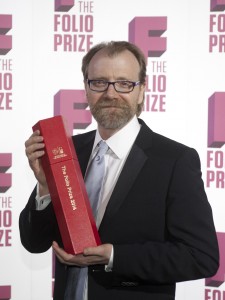 The boy in the backyard is called Bo and we are introduced to the mother, Callie, prior to Marie’s visit. Saunders never quite explains Bo’s condition but it is implied he has severe behavioural problems. Callie believes that chaining him to the tree is a neat solution to a problem. The story ends with Callie’s point of view. She leaves the unsold puppy to die in a cornfield, another neat solution to another problem in her troubled household. ‘Don’t look back, don’t look back, she said in her head as she raced away through the corn.’ Callie is cruel in the name of ‘compassion’. But Marie refuses to contribute to a house that inflicts cruelty, and unwittingly she condemns the puppy to its fate. As stories go, it certainly isn’t pretty. It’s dark but not relentlessly so, just enough to make its point. As Saunders said in an interview with the Guardian:
The boy in the backyard is called Bo and we are introduced to the mother, Callie, prior to Marie’s visit. Saunders never quite explains Bo’s condition but it is implied he has severe behavioural problems. Callie believes that chaining him to the tree is a neat solution to a problem. The story ends with Callie’s point of view. She leaves the unsold puppy to die in a cornfield, another neat solution to another problem in her troubled household. ‘Don’t look back, don’t look back, she said in her head as she raced away through the corn.’ Callie is cruel in the name of ‘compassion’. But Marie refuses to contribute to a house that inflicts cruelty, and unwittingly she condemns the puppy to its fate. As stories go, it certainly isn’t pretty. It’s dark but not relentlessly so, just enough to make its point. As Saunders said in an interview with the Guardian:
“You can choose what you write but you can’t choose what you make live. The first job is to make it jangly with energy. And in my case that often takes a little cruelty, a little dark humour.”
I always comb through stories with a magpie’s eye, ready to pinch whatever takes my fancy: a turn of phrase, a particular technique, an underused word. I could sprinkle my third person narration with typed out laughter (‘hahaha!’) and bind words together with a forward slash – an example from ‘Puppy’ being ‘laugh/snort’ – but, sadly, it’s difficult to lift anything from Saunders without sounding like a poor imitation. His style and voice is so clearly his own.
Saunders is not the only contemporary author to explore the uglier sides of reality. I would like to introduce you to Pinky:
He was about forty-five, with all his hair still dark. He was not bad-looking, elf-nosed and cat-eyed, though a little soccer ball-ish through the chin and cheeks, which together formed a white sphere with a sudden scar curling grayly around. Also, he had the kind of mustache a college roommate of hers used to say looked like it had crawled up to find a warm spot to die.
It’s fair to say that Lorrie Moore’s creation from ‘The Jewish Hunter’ is not much of a looker. I first came across Moore a year ago, picking up her debut collection, Self Help, which launched her as a short story writer. 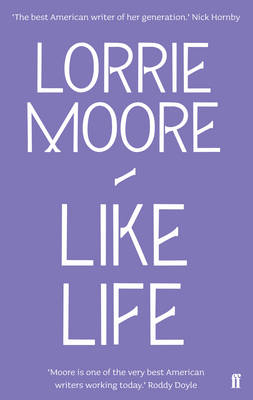 The whizz-bang gimmickry of the second person narration secured me as a fan and she has been a huge influence on my writing. I was drawn in by her humour; her writing makes for good company. Moore is never lost for a quip and ‘The Jewish Hunter’, published in Like Life, sparkles with witty lines. It begins with Odette, a poet whose labours are financed by writer’s residences in various libraries. She embarks on a brief relationship with Pinky.
The whizz-bang gimmickry of the second person narration secured me as a fan and she has been a huge influence on my writing. I was drawn in by her humour; her writing makes for good company. Moore is never lost for a quip and ‘The Jewish Hunter’, published in Like Life, sparkles with witty lines. It begins with Odette, a poet whose labours are financed by writer’s residences in various libraries. She embarks on a brief relationship with Pinky.
She looked at Pinky gleefully, and he smiled back at her as if he thought she was cute but from outer space, like something that would soon be made into a major motion picture and then later into a toy.
Moore brilliantly captures the thoughts that occur when getting to know someone.
They drove past two cars in row with bleeding deer strapped on them like wreaths, like trophies, like women, she thought. “Damn hunters,” she murmured.
“What kind of cigarettes do you like to smoke? Do you smoke Virginia Slims?” asked Pinky with a grin.
Odette turned and lowered her sunglasses, looked out over them at Pinky’s sun-pale profile. “No, I don’t smoke Virginia Slims.”
“I’ll be you do. I’ll bet you smoke Virginia Slims.”
“Yeah, I smoke Virginia Slims,” said Odette, shaking her head. Who was this guy?
‘The Jewish Hunter’ is warm and funny and I drank up the story like soup. It’s hard to create a lovable character within the constraints of a short story. Too many positive attributes and your character will become too worthy and unreal (unless you’re writing a Superman comic, this is generally not a good thing).  Moore imbues Pinky with flaws; he’s uncultured in a way that Odette looks down upon and he can be a bit annoying. Moore leads us to believe that this courting is going nowhere, until Pinky kisses Odette. Odette still thinks he’s a dork but there is something appealing about him. ‘At night he began to hold her in a way that stirred her deeply.’ I love Moore’s observations, which she drops so casually into her prose. There is something wise and knowing in her work that resonates. ‘How quickly bodies came to love each other, promise themselves to each other always, without asking permission.’ I feel as if Moore were guiding me through my own life.
Moore imbues Pinky with flaws; he’s uncultured in a way that Odette looks down upon and he can be a bit annoying. Moore leads us to believe that this courting is going nowhere, until Pinky kisses Odette. Odette still thinks he’s a dork but there is something appealing about him. ‘At night he began to hold her in a way that stirred her deeply.’ I love Moore’s observations, which she drops so casually into her prose. There is something wise and knowing in her work that resonates. ‘How quickly bodies came to love each other, promise themselves to each other always, without asking permission.’ I feel as if Moore were guiding me through my own life.
Late at night, Pinky regularly watches VHS tapes of a series called Holocaust Survivors. ‘… the title flashed blood red on the television screen, as if in warning that it had no place there at all.’ He familiarises himself with the horror that human beings inflicted on one another. Pinky has depth, but his sensitive side isn’t heavy-handed, making Odette’s reaction to him all the more realistic: she is politely baffled rather than gushing with empathy. Later, she finds out that Pinky’s parents were in a concentration camp and she realises that, deep down, she already knew. The relationship draws to an end as Odette cannot commit, although she ponders the notion.
One had to build shelters. One had to make pockets and live inside them. She should live where there were trees. She should live where there were birds. No bird, no tree had ever made her unhappy.
Odette thinks of bringing Pinky to the city. ‘He would slosh through the vagrant urine, shoelaces untied. He would walk through the dog shit awaiting him like mines.’ The story ends with Odette running through various scenarios in her head, finally leaving Pinky behind and moving forward. ‘She felt like someone of whom she was fond, an old and future friend of herself, still unspent and up ahead somewhere, like a light that moves.’
I became dreamy-eyed for Pinky after finishing the story. Though he isn’t conventionally handsome – something Moore doesn’t shy away from in Odette’s wry comments on his appearance – he is a romantic figure. Moore’s writing allows you to fall in love with Pinky through the way he makes you feel; his sincere, loving manner made me swoon. I didn’t care about his imperfect looks any more. Ultimately, stripping down reality in a short story to reveal ugliness and/or beauty is the way to find real human truth.
~
Nafisa Muhtadi is a commissioned and broadcast writer. Her short story ‘How to Conduct a Rishta Meeting’ aired on BBC Radio 4 in January 2016 as part of the ‘Time Being’ series, which showcases new, unpublished writers. She is twice runner-up of Faber Academy’s weekly Quickfic competition. She is part of the 2015-2016 cohort of Writing West Midlands’ mentoring scheme Room 204. Nafisa is based in the Black Country.
